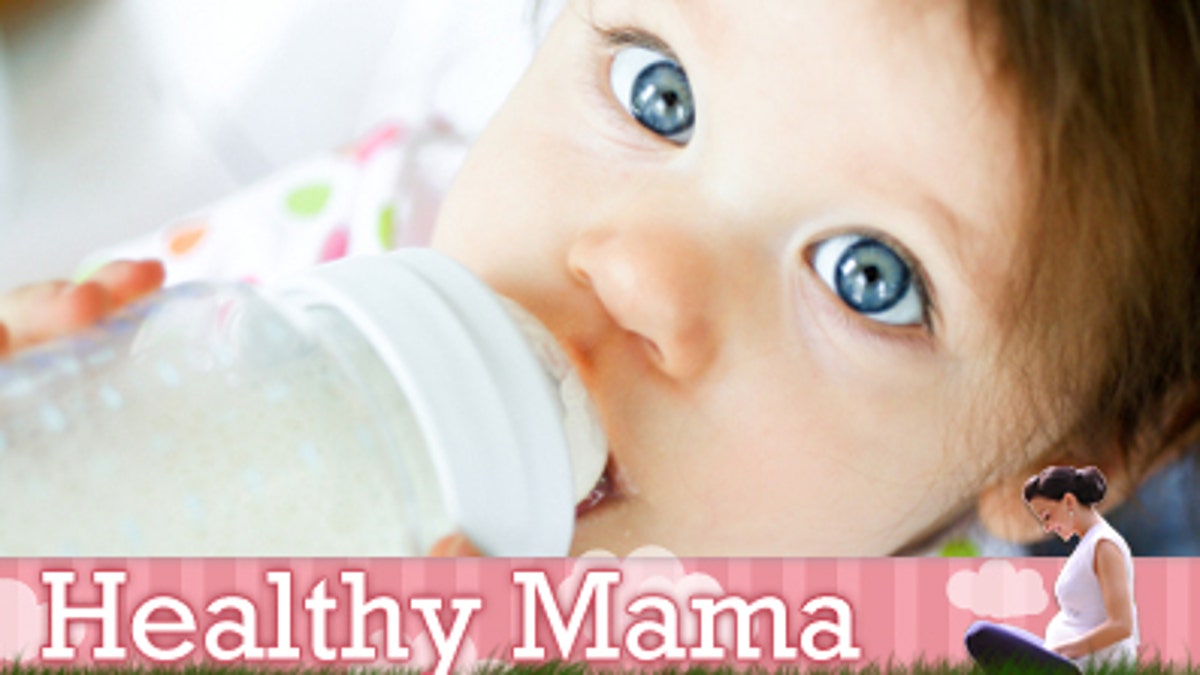
The health benefits of breastfeeding are well-known, and for some moms in the United States, finding a way to sell their milk online has proven to be liquid gold for their bank accounts, too.
Jenna Mosbarger of Scottsdale, Ariz., started selling her breast milk in August after a quick Google search yielded onlythebreast.com, a classified site where moms buy and sell breast milk.
When her son was a newborn, Mosbarger struggled to breastfeed him. Not only was he tongue tied, but he started to develop symptoms of food sensitivities, causing her to feed him formula while she went on a “detox,” eliminating dairy, soy, and corn from her diet.
“It was a very frustrating and emotional time for the first four months of his life because I was trying so hard to do what I thought right and it just wasn’t panning out exactly the right way,” she says.
Although his problems were resolved, by the time she returned to work, he started to show a preference for the bottle. So she rented a hospital-grade pump and decided that pumping exclusively would be their best option.
Mosbarger had an oversupply—often filling quart-sized bags and filling up three freezers worth of milk. She decided to become certified by the National Milk Bank and Prolacta Bioscience and donated about 1,000 ounces of milk. She then realized that she could cover her pumping costs, continue to help other babies, and make some extra cash if she sold her milk too. So using her certification as a marketing tool, she put an ad on onlythebreast.com and set her prices—$2 an ounce for frozen and $5 an ounce for fresh.
She had inquiries within a week and now has ongoing relationships with two moms she sends milk to on a monthly basis—a total of about 300-400 ounces. In about one month, Mosbarger estimates her profit to be approximately $1,500, after she’s covered her costs for pumping and storing.
Glenn Snow, who along with his wife Chelly, co-founded onlythebreast.com says their site allows moms to obtain breast milk at a more affordable rate than the $3.50 an ounce—or more— that the milk banks charge. He says it’s a luxury for moms to be able to donate and it’s unethical not to pay them. “By them being compensated, it actually puts them in a position to be able to share more milk and help more babies,” he said.
Although the site encourages buyers to do business only with moms who have been screened, buying breast milk online is extremely dangerous, according to Dr. Richard J. Schanler, a Neonatologist and Chairman of the Section On Breastfeeding, American Academy of Pediatrics.
Feeding a baby milk from an anonymous source can expose him to infections, diseases, milk that contains alcohol or drugs, or has been contaminated by bacteria. The U.S. Food and Drug Administration does not regulate breast milk, and they caution against buying it from individuals or on the internet because of these safety issues.
There is also a risk that what arrives in the package isn’t even breast milk.
“You don’t know what you’re getting and the risk is enormous,” he said.
Schanler recommends moms consider donating to one of the 11 milk banks affiliated with the Human Milk Banking Association of North America (HMBANA), an organization that issues guidelines which ensure the milk’s safety. In 2007, the HMBANA reported a 185 percent increase in donations since 2000, and they are urgently seeking donors.
“We certainly applaud women who have extra milk who want to help others, but it should be done under those guidelines,” Schanler said.
Mosbarger hopes that buying, selling, and donating will become more mainstream in the future if the industry becomes regulated, but in the meantime, she feels strongly that she’s able to do her part in helping other babies and moms.
“I’m just trying to do what I feel is right for parents who need it,” she says.
Julie Revelant is a freelance writer specializing in parenting, health, and women's issues, a certified Spinning® instructor, and a mom. Learn more about Julie at revelantwriting.com
